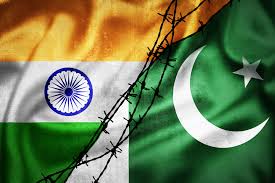
Introduction
Pollution is more than just an environmental issue—it’s a direct threat to your health. In many cities across Pakistan, including Lahore, Karachi, and Faisalabad, air pollution levels often reach dangerous highs, while water, noise, and garbage pollution continue to affect daily life. Whether you’re aware of it or not, pollution may already be impacting your lungs, heart, skin, and even mental health. This article explains how pollution harms your body and what practical steps you can take to protect yourself and your family.
Major Types of Pollution in Pakistan
- Air Pollution – Smoke from vehicles, factories, burning garbage, and brick kilns
- Water Pollution – Contaminated rivers, poor sewage systems, industrial waste
- Noise Pollution – Loud horns, construction noise, traffic
- Garbage/Land Pollution – Unmanaged waste and plastic
- Indoor Pollution – Smoke from cooking, dust, mold, and poor ventilation
Health Effects of Air Pollution
✅ Short-Term Issues:
- Coughing, sneezing, itchy eyes
- Headaches, fatigue
- Asthma attacks
❌ Long-Term Damage:
- Chronic bronchitis and asthma
- Heart disease
- Stroke
- Lung cancer
- Reduced brain function and memory problems
Children and the elderly are especially vulnerable.
How Water Pollution Affects Health
- Diarrhea, vomiting, and stomach infections
- Typhoid, cholera, and hepatitis
- Long-term exposure can lead to kidney damage and cancer due to heavy metals like lead and arsenic in some regions
Noise Pollution Effects
- Sleep disturbances
- High blood pressure
- Stress and anxiety
- Hearing loss over time
Land and Garbage Pollution Consequences
- Unhygienic living conditions
- Insect and rodent-borne diseases (like dengue, malaria)
- Breeding grounds for bacteria and parasites
Indoor Pollution (A Silent Danger)
Many homes in Pakistan use wood, coal, or kerosene for cooking, especially in rural areas. This creates indoor air pollution, which is linked to:
- Lung infections
- Eye problems
- Poor growth in children
- Higher risk of pneumonia
What You Can Do to Protect Yourself
🌫 Air Pollution Protection
- Wear a face mask (preferably N95) when AQI is high
- Avoid walking or exercising near traffic
- Keep windows closed during smog days
- Plant trees and indoor plants (like aloe vera, snake plant) to improve air quality
💧 Water Safety Measures
- Boil or filter drinking water
- Use covered containers
- Avoid drinking from unknown sources when traveling
- Regularly clean water tanks
🔇 Reducing Noise Exposure
- Use earplugs if you live near busy roads
- Turn off extra noise in your home
- Advocate for quiet zones around schools and hospitals
🧹 Managing Garbage
- Don’t litter—dispose of trash properly
- Recycle plastic and paper when possible
- Educate your family about waste separation
- Join or support local clean-up drives
🏡 Indoor Pollution Fixes
- Use exhaust fans in kitchens
- Ensure rooms are well-ventilated
- Switch to clean cooking fuels (like gas or electric stoves)
- Keep carpets and curtains clean to reduce dust
Role of the Government and Community
- Stricter laws on vehicle emissions and factory waste
- Better public transportation to reduce traffic pollution
- Waste management systems in urban and rural areas
- Public awareness campaigns in schools and communities
Final Thoughts
Pollution in Pakistan is a serious health crisis—but it’s not hopeless. By taking small, consistent actions in your home, community, and daily habits, you can reduce your exposure and encourage others to do the same. Your health is worth protecting—every breath, sip, and sound matters.